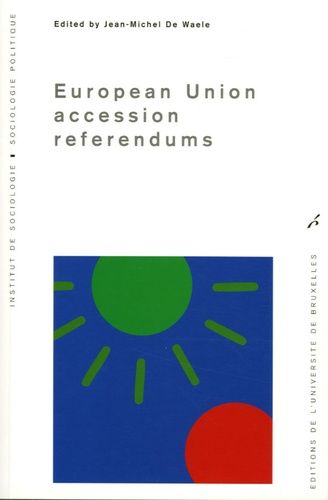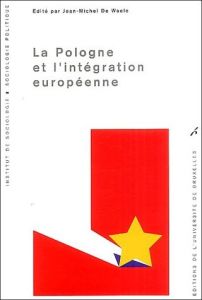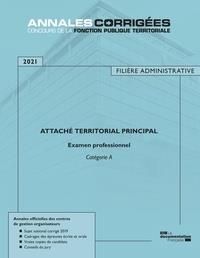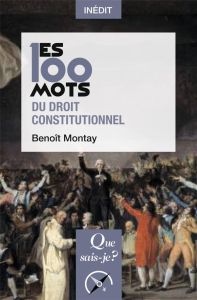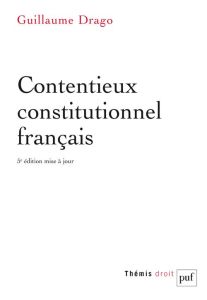European Union accession referendums. Edition en Anglais
De Waele Jean-Michel
UNIV BRUXELLES
Résumé :
This book analyses the Central European Countries' referenda on their accession to the European Union. These events took place in a very short period of time and have the same main issue at stake; this is why a comparison of their results is very feasible. Political scientists of different countries use the same pattern for their analysis, taking Into account the themes of the campaigns, their organization, the pro- and anti-European electorates, the stake of Europe in the public discourse, and the issue areas that were mobilized. Can we speak about the same types of arguments for the different countries? Did the different types of relations with Europe have a stake in the results? Is it possible to compare the anti-European electorates? Which were the public positions of the different political parties, trade unions and employers' organizations? Is it possible to draw a parallel with the situation in the other fifteen member States? Was the position of the parties in a political family Identical for the different countries? Can we speak about peculiarities due to the communist past? Is there a domino effect for the different consultations? This book tries to answer the questions outlined above. A transversal reading of these themes is favored by the chapters' organization. At a time when Europe gets more and more visible in the national political debates, and when the first political and economic effects of the enlargement are being felt, it is important to better understand the European debate in the new member States, as this Is too often ignored or misinterpreted. The reactions after the first European Parliament elections prove this point. This book is a reminder and an analysis of the results of these ballots. The wave of referenda on the EU accession in eight States allows us to better understand the way in which the social and political actors, but also the citizens of Central Europe, understand the European construction. Moreover, it allows a comparison not only of their attitudes in the framework of the region, but also with elder member States of the European Union.
This book analyses the Central European Countries' referenda on their accession to the European Union. These events took place in a very short period of time and have the same main issue at stake; this is why a comparison of their results is very feasible. Political scientists of different countries use the same pattern for their analysis, taking Into account the themes of the campaigns, their organization, the pro- and anti-European electorates, the stake of Europe in the public discourse, and the issue areas that were mobilized. Can we speak about the same types of arguments for the different countries? Did the different types of relations with Europe have a stake in the results? Is it possible to compare the anti-European electorates? Which were the public positions of the different political parties, trade unions and employers' organizations? Is it possible to draw a parallel with the situation in the other fifteen member States? Was the position of the parties in a political family Identical for the different countries? Can we speak about peculiarities due to the communist past? Is there a domino effect for the different consultations? This book tries to answer the questions outlined above. A transversal reading of these themes is favored by the chapters' organization. At a time when Europe gets more and more visible in the national political debates, and when the first political and economic effects of the enlargement are being felt, it is important to better understand the European debate in the new member States, as this Is too often ignored or misinterpreted. The reactions after the first European Parliament elections prove this point. This book is a reminder and an analysis of the results of these ballots. The wave of referenda on the EU accession in eight States allows us to better understand the way in which the social and political actors, but also the citizens of Central Europe, understand the European construction. Moreover, it allows a comparison not only of their attitudes in the framework of the region, but also with elder member States of the European Union.
18,00 €
Disponible sur commande
EAN
9782800413495

Caractéristiques
| EAN | 9782800413495 |
|---|---|
| Titre | European Union accession referendums. Edition en Anglais |
| Auteur | De Waele Jean-Michel |
| Editeur | UNIV BRUXELLES |
| Largeur | 160mm |
| Poids | 270gr |
| Date de parution | 01/06/2005 |
| Nombre de pages | 154 |
| Emprunter ce livre | Vente uniquement |
Autres livres par l'auteur de " European Union accession referendums. Edition en Anglais " (De Waele Jean-Michel)
-
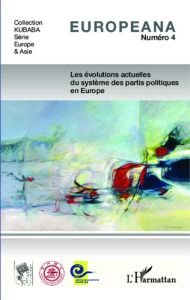 De Waele Jean-MichelEuropeana N° 4 : Les évolutions actuelles du système des partis politiques en Europe18,00 €
De Waele Jean-MichelEuropeana N° 4 : Les évolutions actuelles du système des partis politiques en Europe18,00 € -
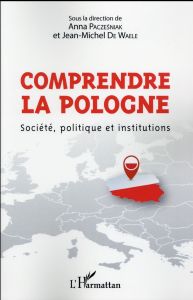 Paczesniak Anna - De Waele Jean-MichelComprendre la Pologne. Société, politique et institutions32,50 €
Paczesniak Anna - De Waele Jean-MichelComprendre la Pologne. Société, politique et institutions32,50 € -
 De Waele Jean-Michel - Delwit PascalLa démocratisation en Europe centrale. La coopération paneuropéenne des partis politiques19,00 €
De Waele Jean-Michel - Delwit PascalLa démocratisation en Europe centrale. La coopération paneuropéenne des partis politiques19,00 € -
-
De Waele Jean-Michel - Husting AlexandreSport, politiques et sociétés en Europe centrale et orientale17,00 €
-
-
Pilet Jean-Benoit - De Waele Jean-Michel - JaumainL'absence de partis nationaux : menace ou opportunité ?19,00 €
Dans la même catégorie ( Droit civil )
-
-
-
CENTRE INTERDEPARTEMAttaché territorial principal. Examen professionnel Catégorie A, Edition 202114,00 €
-
CENTRE INTERDEPARTEMTechnicien principal de 1re et 2e classe examens spécialité 2. Catégorie B , Edition 2020-202122,00 €
-
-
Ma liste d’envies
Derniers articles ajoutés
Il n’y a aucun article dans votre liste d’envies.
- Commande avant 16h : Demain dans la boîte aux lettres !
- Livraison dès 3,50 €
- Retrait gratuit
- Paiement 100% sécurisé
4,6/5 - ⭐⭐⭐⭐⭐
2448 Avis - Source Google

